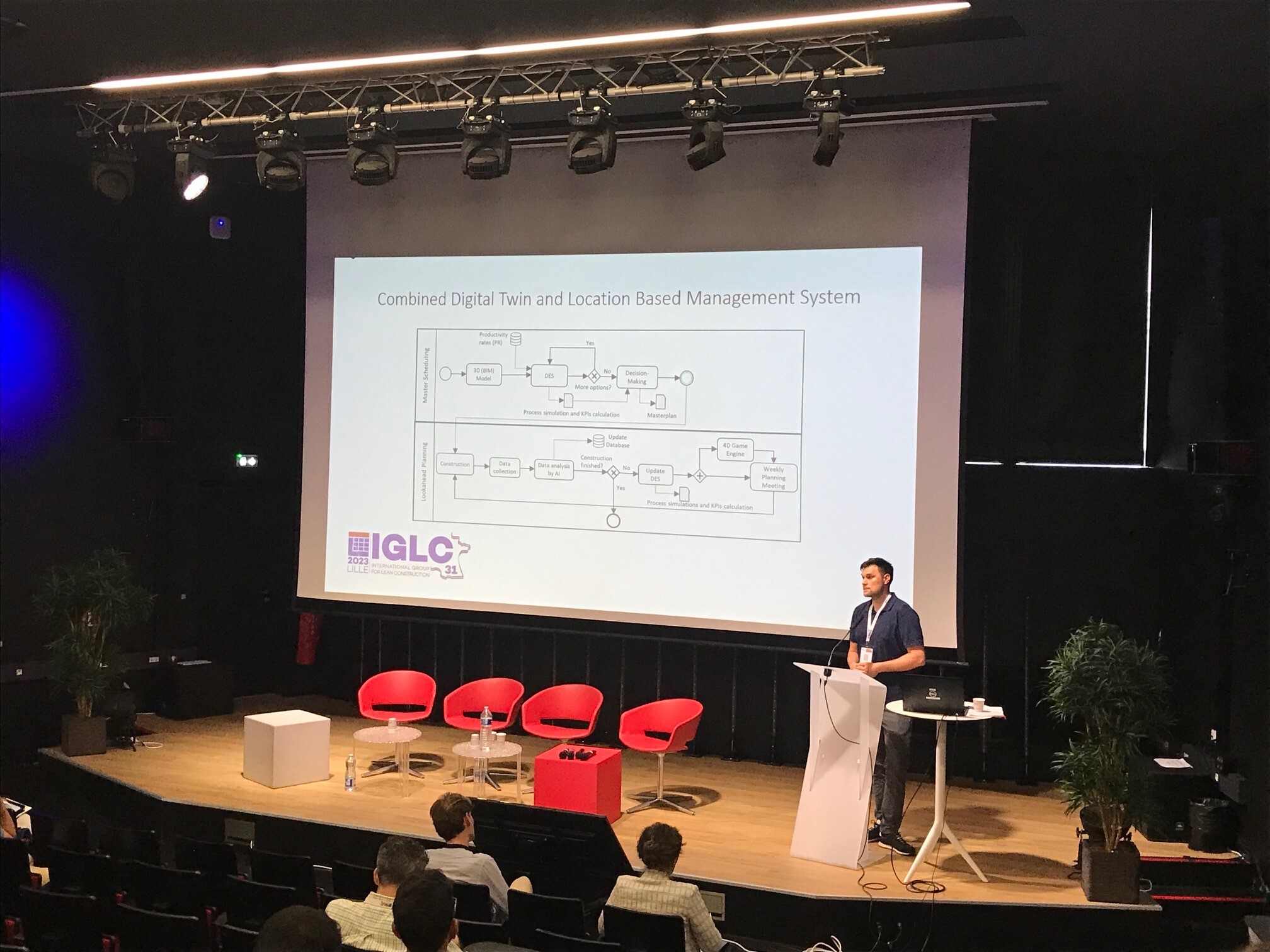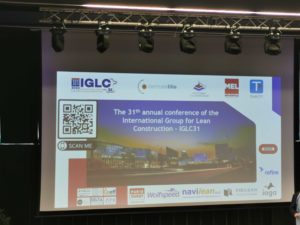ASHVIN Partners (Manuel Jungmann and Timo Hartmann from TUB, Rahul Tomar from DTT and Lucian Ungureanu from DigitAEC ) have published fresh Proceedings at the 31st Annual Conference of the International Group for Lean Construction (IGLC). This conference was organised in Lille, France, from the 26th of June to the 2nd of July, 2023. The scientific event is dedicated to sharing lessons learned, ideas, and findings from research and practices in the AEC sector.
The conference proceeding presented by the ASHVIN partners is entitled A Combined Digital Twin and Location-Based Management System, and it presents ASHVIN’s research and developed digital twin technologies supporting construction project planning and control.

ABSTRACT
The coordination of resources’ flow during location-based construction is complex due to limited space and simultaneous movements, management systems have been extended by adding a control stage to handle deviations from the initial schedule. However, a suitable information system has yet to be established. Therefore, a combined digital twin and location-based management system was developed. The digital twin concept relies on continuous, real-time data collection to provide information about the project’s status. Combining both methods facilitates effective, data-based production planning of the resources’ flow over time and space. The proposed system offers the ability to proactively manage real-time information for ongoing location-based work through discrete event simulation. For improved understanding among stakeholders, the simulated processes are visualised in a 4D game engine. In an exploratory study, the system’s effectiveness was demonstrated by using literature-based changes in productivity rates during the construction of finishing work in a high-rise building. The discrete event simulation results indicate that by ordering reasonable actions in response to construction deviations, a high level of resource efficiency can be maintained. This highlights the importance of using real-time data in location-based construction projects.
View and download the complete paper: https://zenodo.org/record/8113458






